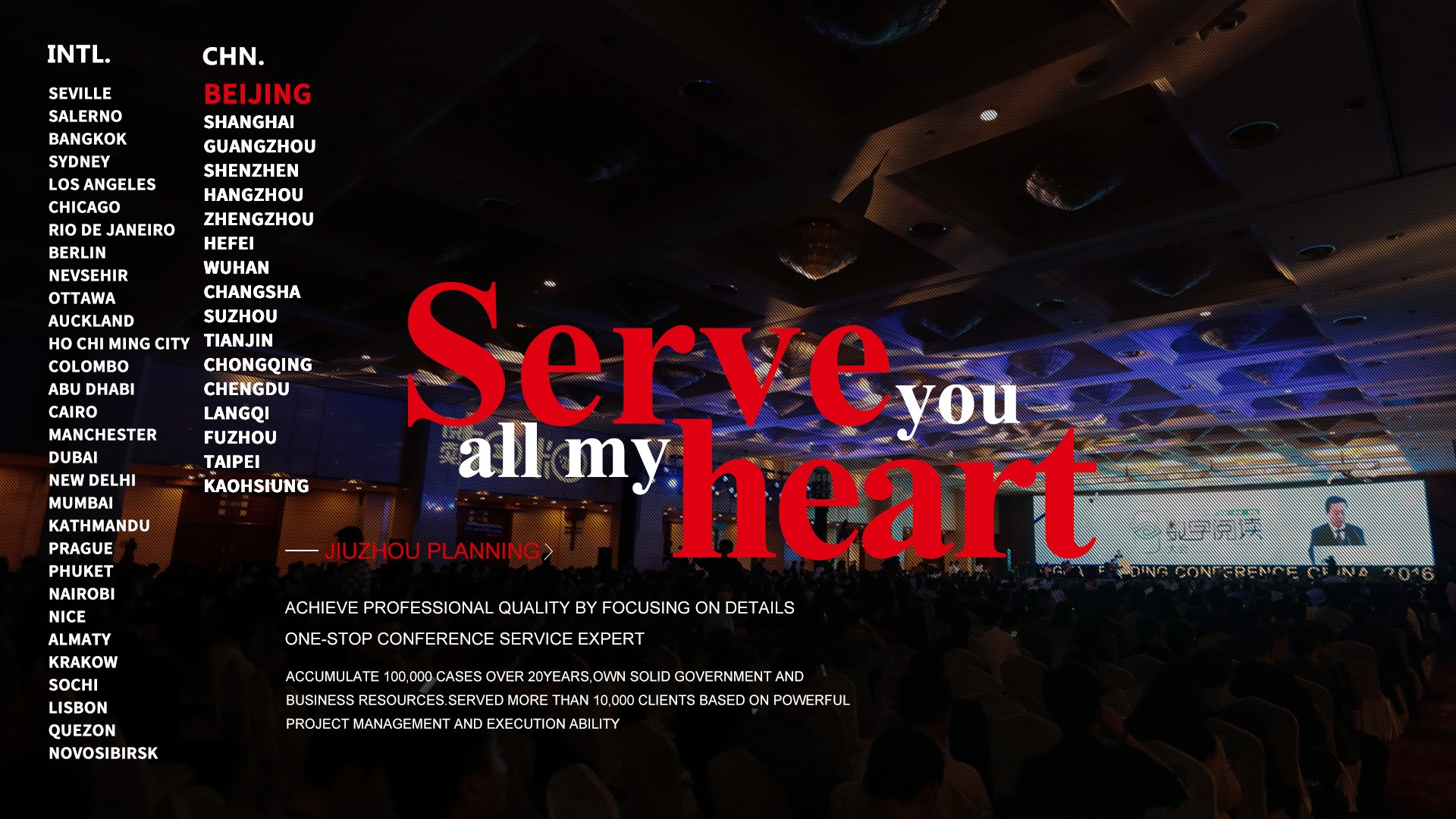
Activity planning and implementation require the accumulation of experience, and large-scale activities should be re-planned and implemented. Activity planning and implementation, there are many skills to use, as long as the experience is summed up and applied in practice, we can plan and implement more, more influential and more successful activities.
How to plan a large-scale event? What is a large-scale event? What is the standard? Large-scale festivals require more manpower, material resources, energy.
The first step is to figure out a few basic questions, such as:
How to define large-scale activities?
Which units or under what circumstances use large-scale activities? What are the major event planning techniques and issues to be aware of? What are the procedures and methods of planning?
This will help us to improve the organization of large-scale events.
Five points to keep in mind
1. Definition of large-scale activities
A large-scale event is a social coordination activity that organizes many people to participate in a purposeful, planned, and step-by-step manner. This definition must grasp three important concepts:
First, large-scale events must have a clear purpose.
Large-scale activities often consume a lot of resources, including manpower and material resources. If a product wants to enter a central city, I am afraid that it will cost millions of dollars to spread. Such a large cost, why should we organize such a large-scale event? Of course, for the purpose of corporate communication, in order to attract more people to buy his stock, this is the goal of large-scale activities. It is impossible to spend money to do activities without purpose, and the purpose is not clear and it is not worth it.
Second, be planning
Everything should be planned, and large events are no exception, and more demanding planning is required.
Third, the participation of many people is an important concept of large-scale events.
Since it is a large-scale event, there should be a large number of people involved, but not a large number of participants is a large-scale event. There are 10,000 employees in a unit. It is necessary to open a general assembly. It is also attended by many people. Can you say that this is a large-scale event? The fundamental difference between large-scale activities and small-scale activities is not only the number of participants, but the socialization of activities. degree.
2. Characteristics of large-scale events
First, there must be a clear purpose
It is not a general purpose, but rather an objective established around the organization's organizational image strategy and recent public relations goals. The image of an organization can only be synchronized with the society forever, and it is possible to establish its good organizational image in the social environment. If it is by deception, even if it temporarily captures the sales market, or increases the market share, it will eventually To exit this market.
Therefore, the purpose of the activity should stand on the stand of social integration, and not only stand in the position of one of our enterprises.
Second, extensive social communication
The large-scale event itself is a media, and its role is like a mass media. However, this media does not spread before large-scale events are organized. Once this activity is carried out, it will produce good communication effects. It should be noted that the activity itself attracts the participation of the public and the media. Therefore, the information of large-scale events is transmitted through the media or through the public. This is a very important feature that we must consider in the planning of large-scale events.
Third, strict operability
In the process of organizing large-scale events, we have only one chance to succeed and fail. Because large-scale events make different movies, TVs, movies, TVs, three or four sets of shots, and finally re-editing, but each time a large-scale event is planned to be broadcast live, once the mistakes can not make up.
Fourth, high investment
A large-scale event often requires a lot of money and expenses, and it is absolutely impossible to make a lot of activities with very little money. We can promote the spirit of a copper plate into two or even multiple flowers, but high investment is the most basic feature.
3. Large-scale event planning
From a procedural point of view, the planning and implementation of large-scale events must be carried out in full accordance with the requirements of the four-step work method:
The first is to determine the activity as a project.
Do you want to do this activity? Why do it? It must be very clear.
Second, conduct surveys and feasibility studies
Investigating, everyone is very clear, not elaborated, but the large-scale event planning survey has its particularity, such as the content of the survey: the state's policies and regulations on large-scale activities, public hotspots, information on similar cases in history, site conditions And the selectivity of time is the content of the investigation. Feasibility study is a very important work step. The scope of research includes the social adaptability of large-scale events, including the social environment and the adaptability of the target public. The feasibility of financial adaptability and efficiency. From the perspective of efficiency, is it effective for us to save money on such activities? If I advertise in the media, it is more effective than doing large-scale activities, and large-scale events are not necessarily done. There is also the adaptability of social material levels. Large-scale activities require the use of many social substances, and many ideas also need material support. Therefore, planners need to grasp modern scientific research results. The last one is the adaptability of emergency response capabilities. What are the contingency measures? For example, outdoor activities should consider the weather conditions, and field activities should consider more safety facilities. These are the areas where we want to conduct feasibility studies.
Third, refine the theme and make ideas
In addition to personal creativity, we must emphasize the concept of group creativity. Today's era is no longer like Zhuge Kongming in the era of the Romance of the Three Kingdoms. It depends on a person to figure out what to do, but to plan by a group of different disciplines. This is not to annihilate individual creativity. The process of collective creativity always runs through the individual creative process. As a modern planner, it is the comprehensive and collective wisdom of multiple disciplines, not the masterpiece of a master.
Fourth, the program argument
The program must not only have arguments, but also scientific arguments. The program arguments usually use the positioning preference method, the rotation optimization method and the advantage transplantation method.
4. Problems that should be paid attention to during the operation implementation process
First, implement operational design
We should attach great importance to the operational design of the implementation. We have seen that some organizations organize activities, even those undertaken by professional organizations. There are such problems: the creativity is very good, but due to the lack of operational design, there are many problems in the operation process, which violates the original spirit or fails to reach the original level. . Therefore, after the principle plan is determined, further operational design is required, and the operational design must include a more accurate financial budget.
Second, go through the formalities of approval
Some people think that the approval is very cumbersome and afraid of trouble. However, in actual work, we should hope to get approval from the relevant units.
Third, the implementation of the management of operational procedures
Programmatic management is a scientific management consciousness. Only programmatic implementation can standardize and scientifically manage. Therefore, it is important to design a standardized procedure for operation.
Fourth, program training
In large-scale events, if the participating staff do not understand the overall planning intentions, they cannot provide constructive labor for the implementation of the large-scale activity strategy. Therefore, it is necessary to train the staff in the program, and only the knowledge can be contributed.
Fifth, design evaluation criteria
Sixth, an assessment of a large event should have an accurate assessment criteria. Nowadays, after many programs are completed, they often neglect to make evaluation standards, including our customers rarely ask us to do evaluation programs, and are even less willing to pay fees, so that professional companies can give him evaluation reports. The evaluation criteria should be designed when we plan, so that the customer can make a scientific assessment based on the set criteria after completing the program.
5, planning skills
The first is to create the "eye" of the activity. The concept of "eye" is drawn from the eye of the article and the song of the song.
Large-scale event planning also needs to create such a very exciting place. To have a climax, it is necessary to design this link more communicatively. This is the core and key of the large-scale event creativity.
Second, there should be an atmosphere design that is more able to express our theme.
Today, everyone saw the theme image publicity board of the conference in the conference venue. It is very clear, and it has Chinese and English. These publicity boards bring out the theme atmosphere of this conference, and also bring out the concept of international public relations exchange. This is very thoughtful. plan. We should pay attention to the design of the venue, the design of the atmosphere, and bring out the theme atmosphere of the event. Many people often pay less attention to it. They only consider the creativity in one activity and ignore the creativity on the venue.
In the planning and implementation of large-scale events, there are still many skills to be used. As long as we continue to summarize and improve, we will be able to create more and more influential large-scale events.
Event planning and implementation is a common technical means used by corporate planning departments, public relations companies, planning companies, and advertising companies in their work. Successful activities can continue to enhance the brand, global brand network - visibility, recognition, reputation, loyalty, customer satisfaction, enhance the organization's brand image, change the public's perception of the organization, accumulate intangible assets, and can be different degrees Promote sales. Many organizations have operated large-scale events, but there are no common goals, no focus, no sternness, and not enough rigorous public relations activities. Some activities were unsatisfactory due to poor planning or crisis management, resulting in failure of activities, large losses, and even accidents, resulting in casualties and legal sanctions.
Event planning has a regular approach to follow, but there are also a lot of tricks. Three points of planning, seven points of implementation.
Jiuzhou planning group, after more than 20 years development with 100,000 successful cases, professionally concentrates on the planning of all kinds events,like launch ceremony, completion ceremony, signing ceremony , foundation stone laying ceremony, opening ceremony and so on.Jiuzhou planning international chain is a high-end transnational planning company.
Website:http://www.jiuzhouplanning.com/EN/
Free Hotline: 400-819-1976
Mobile: +8613911354921
